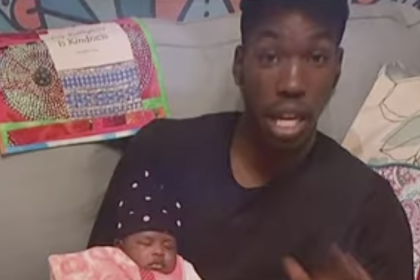
The tragic story of Army veteran Carl Victor Honey has raised serious ethical concerns regarding the treatment of unclaimed bodies in medical research. After his death in 2022, Honey’s body was reportedly frozen, dismembered, and sold for profit by the University of North Texas Health Science Center. This shocking revelation has sparked outrage and calls for accountability in how unclaimed bodies are handled.
Background on Carl Victor Honey
Carl Victor Honey, who struggled with homelessness and paranoid schizophrenia, died without a known family to claim him. His body was classified as unclaimed and subsequently donated to the University of North Texas Health Science Center for medical research, part of a larger program that has come under scrutiny.
However, Honey’s ex-wife, Kimberly Patman, has publicly disputed the claim that he was unclaimed, stating, “His son has his same name. How could he be unclaimed?” This raises significant questions about the university’s efforts to locate his family and the criteria used to label a body as unclaimed.
Unethical Practices Exposed
Honey’s case is not an isolated incident. Reports indicate that at least 11 other families have come forward with similar stories, alleging that their loved ones’ remains were sold without consent after being deemed unclaimed. Honey’s right leg was sold to a Swedish medical device company for $341, while his torso fetched $900 from a medical education company in Pittsburgh.
The University of North Texas Health Science Center has acknowledged shortcomings in its Willed Body Program, posting on its website, “We have become aware of issues within our Willed Body Program and that failures existed in its management and oversight.” The university has since suspended operations of the program and is undergoing an internal review.
Community Response and Investigations
The public outcry following these revelations has prompted investigations into the university’s practices. NBC News, which played a pivotal role in uncovering these unethical practices, reported that the university had been treating unclaimed bodies as resources for medical training, often without the consent of the deceased or their families.
According to Thomas Champney, an anatomy professor at the University of Miami Miller School of Medicine, the practices employed by the university are unethical. He stated, “The county and the medical school are doing this because it saves them money, but that doesn’t make it right. Since these individuals did not consent, they should not be used in any form or fashion.” This sentiment is echoed by Tarrant County Judge Tim O’Hare, who has vowed to investigate and put an end to these immoral practices.
Ethical Considerations in Medical Research
The ethical implications of using unclaimed bodies for medical research without consent are profound. Families should have the right to know how their loved ones’ remains are treated after death. Judge O’Hare emphasized in a statement, “No individual’s remains should be used for medical research, nor sold for profit, without their pre-death consent, or the consent of their next of kin. The idea that families may be unaware that their loved ones’ remains are being used for research without consent is disturbing, to say the least.”
The case of Carl Victor Honey shines a light on the troubling practices surrounding unclaimed bodies in medical research. As investigations continue, it is crucial for institutions to uphold ethical standards and ensure that the dignity of the deceased is respected. Families deserve transparency and respect in the handling of their loved ones’ remains, and it is imperative that policies are put in place to prevent such violations from occurring in the future.








